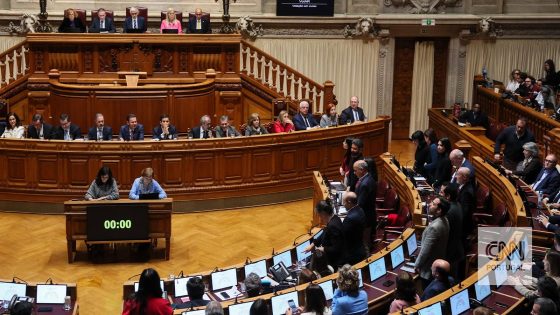On February 11, 2025, Brazilian Senate President Davi Alcolumbre announced the government’s 25 priority agendas during a press conference. This meeting included key ministers such as Fernando Haddad and Alexandre Padilha, who discussed significant reforms aimed at enhancing Brazil’s economy and social welfare. What changes could these proposals bring to everyday Brazilians?
- Ministers presented 25 government priorities.
- Davi Alcolumbre addressed the press.
- Key ministers involved: Haddad and Padilha.
- Income tax exemption for low earners proposed.
- Regulation of big tech companies planned.
- Modernization of medication pricing laws suggested.
Brazil’s Government Unveils 25 Priority Agendas for Economic Growth
How will these new priorities impact Brazil’s future? The government aims to address pressing issues like tax reform and credit accessibility. With a focus on modernizing regulations and enhancing social welfare, these initiatives are designed to create a more equitable economy.
Key Focus Areas in Brazil’s 25 Priority Agendas
The Brazilian government has outlined several key areas of focus to stimulate economic growth and improve citizens’ lives. These initiatives aim to create a more robust economy while addressing social inequalities.
- Tax Reform: A proposed income tax exemption for those earning up to R$ 5,000.
- Credit Accessibility: Enhancements to the operational framework for credit systems.
- Technology Regulation: New rules for large tech companies to ensure fair competition.
- Healthcare: Updates to the pricing regulations for medications.
Tax Reform: A Game Changer for Brazilian Citizens
The proposed tax reforms could significantly alter the financial landscape for many Brazilians. By exempting individuals earning less than R$ 5,000 from income tax, the government aims to alleviate financial burdens for low-income families. This move could enhance disposable income and stimulate consumer spending.
Enhancing Credit Accessibility in Brazil
Improving access to credit is another critical aspect of the government’s agenda. The introduction of a streamlined process through eSocial aims to make it easier for citizens to obtain loans and financial assistance. This change could empower individuals and small businesses, fostering economic growth.
Regulating Big Tech: A Step Towards Fairness
The regulation of large technology companies is essential for ensuring a level playing field in the market. By implementing new economic regulations, the government seeks to prevent monopolistic practices and promote competition. This could lead to better services and prices for consumers.
In conclusion, Brazil’s 25 priority agendas represent a significant shift in the government’s approach to economic growth and social welfare. These initiatives could reshape the Brazilian economy and create new opportunities for both citizens and international investors.





























![Will Avalanche [AVAX] Plunge Further? Bears Set Sights on $14.5 Support!](https://news.faharas.net/wp-content/uploads/2025/03/Will-Avalanche-AVAX-Plunge-Further-Bears-Set-Sights-on-145.webp.webp)


